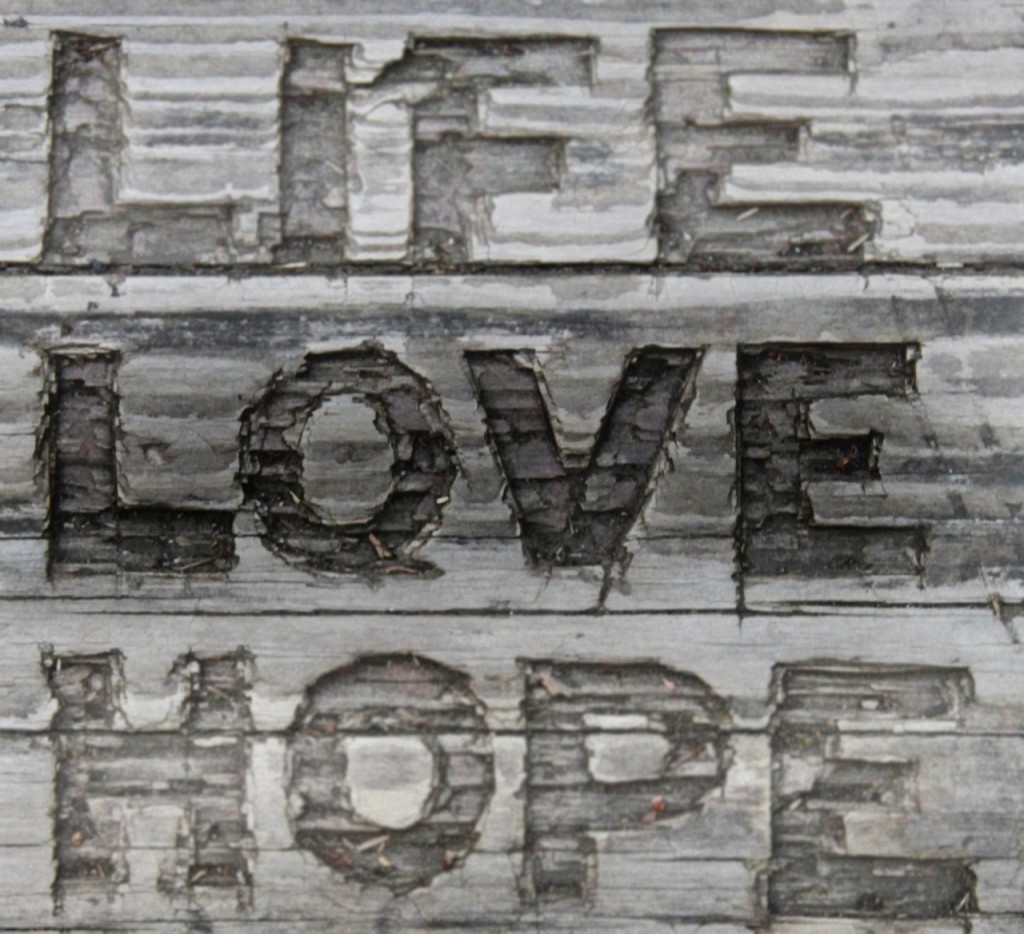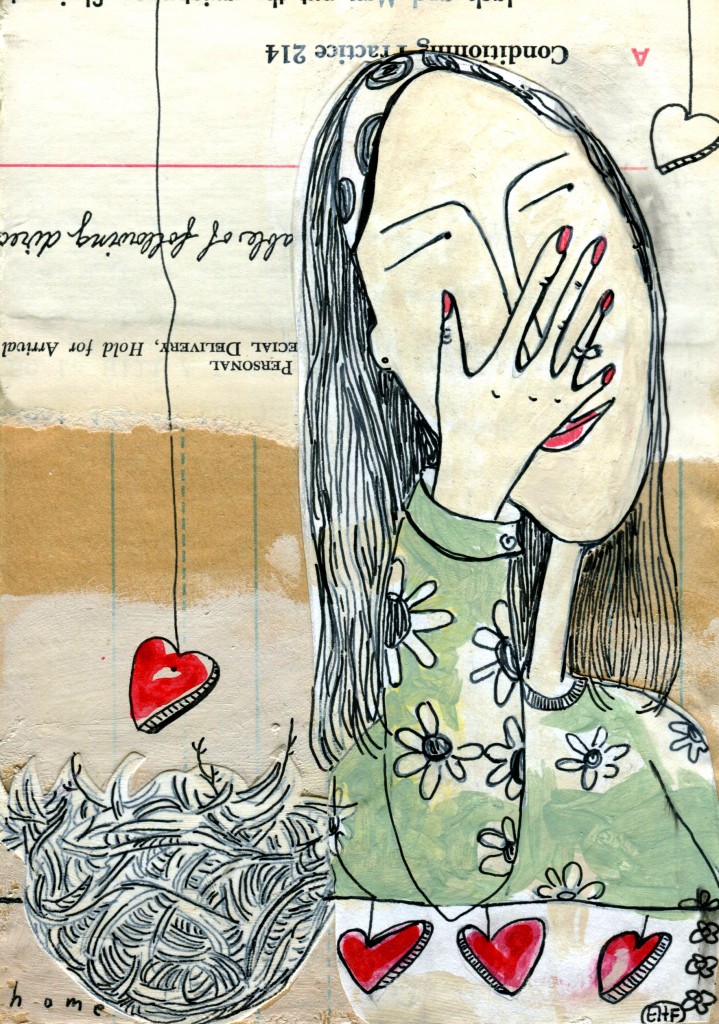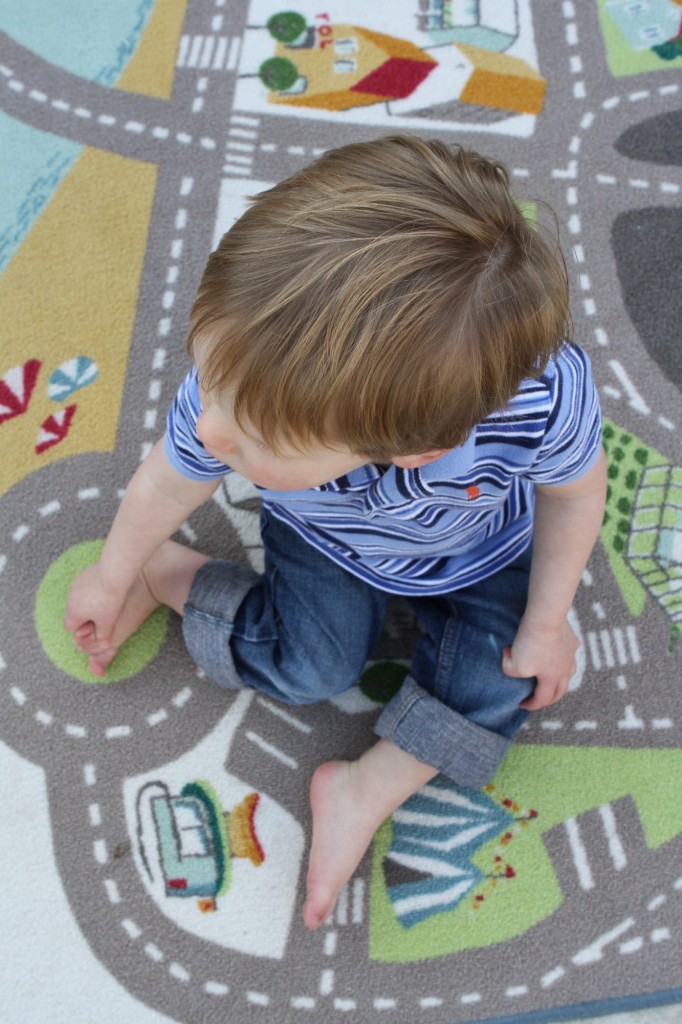
By Maggie Thach
It was 2:12 a.m. I woke up to what sounded like a stick being ripped across a wooden fence over and over again. My muscles tensed but soon settled when the familiar sound sunk in. I looked over at Mike sleeping next to me. My brother’s croaking hadn’t woken him yet.
Ghandy was wide awake, and the cacophony emanating from him proved it: his open palm driving his bottom row of teeth to collide with the top, his teeth clicking in rapid succession, his knee slamming against the hollow wood floor. All these tics had the paradoxical quality of making him feel comfortable in a new setting.
My mom and brother slept on an air mattress in the living room ten feet away from our bedroom. My dad was on the couch. In my hundred-year-old apartment with no proper doors to separate the two rooms, a typical scene played out between my parents. Since Ghandy was born with brain damage twenty-seven years ago, they have always argued about how to take care of him.
“Don’t force him to go back to sleep,” my mom said. “Just leave him alone.”
“He was too hot,” my dad said. “You should have taken off his long-sleeve shirt before he went to sleep.”
“He’s awake because he had a wet diaper. You gave him too much water before bed.”
“Godammit.”
My family was in town visiting. And like a good Vietnamese daughter, I invited them to stay at the apartment I shared with my boyfriend.
The noises didn’t bother me. I had learned to sleep through them a long time ago. But a pulsating feeling filled my stomach, like my heart had slid out of its proper place to a spot right behind my belly button. Even though I was in my bed in my own home, I had the feeling that my family and I were being stared at and judged. Ghandy waking up in the middle of the night was nothing new for my family, but having Mike there caused a tension that I didn’t know how to quell. When it comes to Ghandy, my parents’ attitude is that Ghandy comes first, and everyone else can adjust. I felt like my family had just become a huge imposition on not only Mike, but our upstairs neighbor, who I was convinced could hear all the commotion as well as we could.
This made me feel like a helpless little girl again. When people used to ask me, “What do you want to be when you grow up?”, I replied with what I thought they wanted to hear. “I want to be a doctor or a lawyer.” But what I really wanted to say was, “I want to be normal.” Growing up, my family was different. We were the only immigrant family on our street. We were also the family with the retarded brother. People looked at Ghandy like he was an animal.
Ghandy’s noises grew louder. Mike was now awake. He wrapped a pillow around his head, though it was useless.
“What’s wrong with your brother, Maggie? Can we do anything?”
“He just woke up. I don’t think he’s going back to sleep.”
“I didn’t realize how loud he could be.”
“I know.”
“I just feel bad for our neighbor upstairs.”
I didn’t reply, just turned my back to him and pulled my knees up to my chest. In that moment, what I had feared for the entirety of my adult life was impossible to ignore. My parents will pass away one day, and Ghandy will need someone to take care of him. As the oldest, I knew this responsibility would most likely be my inheritance. I had promised my parents that Ghandy would never end up in an institution or a home. But it was scary to think about what this responsibility would hold me back from. Would it keep me from traveling? From having my own family? Would Mike be willing to take on this burden with me? Would anyone?
•••
My brother was named after Mahatma Gandhi. Just like mine and my sister’s before him, Ghandy’s namesake was a world leader whom my father admired. I was named after Margaret Thatcher and my sister after Golda Meir. Ghandy is a name that my brother has never been able to say himself, a name that holds significance he will never understand. Throughout my childhood, my parents referred to Ghandy as sick. I only came to the term “cerebral palsy” after accompanying my parents to numerous doctor appointments.
As the oldest sibling, my instinct to protect Ghandy was especially strong. My dad took us to the doctor once, and records showed that Ghandy and I needed some vaccinations. I wanted to be brave and go first. Still, I was scared. I had the urge to pull up my legs, which hung lifelessly a foot above the ground, and make myself into a tight ball. The nurse lowered the needle to the taut flesh pinched between her fingers. My breathing quickened, and I had to look away as the needle punctured my skin.
“See, that wasn’t so bad.”
“That kinda hurt,” I said. “I think my brother’s gonna cry a lot.”
I looked at Ghandy, took his hand and caressed it. He had the cutest hands—soft skin, portly fingers, chubby palms; the only blemish was a wart by the knuckle above his left-hand middle finger. The wart bothered me. I picked at it, hoping it would fall off. Ghandy reacted as he usually did, looking around the room like voices from different directions were calling his name. I stopped obsessing about the wart and started to sing his favorite Vietnamese nursery rhyme. He smiled and laughed.
“There. All done,” the nurse said.
“All done?”
I learned something in that moment. What worries me doesn’t matter to Ghandy. The beautiful thing about him is that he doesn’t know fear. He only knows what it is to be loved. Since he was born, he has been the center of my family. It is an unspoken truth that my brother will always be taken care of.
This truth has been too heavy to bear at times. It feels like an impending sentence, ominously lurking somewhere in my future. I never know when it will happen, only that it will. To soothe this anxiety, the only remedy that I’ve come up with is to avoid what is inevitable. But as I get older, I know I can’t keep putting off this reality. Ultimately, this is the thing I’m scared to face: that when I become Ghandy’s sole caretaker, his life will eclipse mine, and whatever I have done or accomplished in my life will mean nothing.
I want to be a wife. I want to be a mother. I want to be a writer. I want my own life. Having a brother like mine, does wanting these things make me selfish?
This was the question that circled my brain since Ghandy woke up. As morning approached, Ghandy’s croaking turned into cooing. Still, it was enough to keep Mike up. Around five a.m., Mike got out of bed, put on some headphones, and did some work. I didn’t know if he was mad or not. I was afraid to ask.
My brother was able to sleep well for the rest of the trip, although that first night had planted a seed of dread that grew for the remainder of my family’s visit. After they left, I knew I had to talk to Mike.
“Mike, can I tell you something?”
“Yeah. What’s going on?”
“I don’t know what’s going to happen in the future, but I know I’m probably going to have to take care of Ghandy one day. I’m really scared because I don’t know if I can do it alone.”
My eyes fell to the ground. There was a possibility Mike would give me the look that said, This is a big responsibility. This is asking a lot. I wanted to avoid that look if possible. I didn’t expect the next thing to come out of his mouth.
“Maggie, you’re not going to have to do it alone. Me, you, your sister, and her husband—between the four of us, we’ll figure it out.”
After all that time wondering what would happen if Ghandy were to hijack my life, this was all Mike needed to say to make me feel that this fear was conquerable, that he would help me find a way to make it work. That I wouldn’t be alone.
•••
On a typical Wednesday morning, Mike and I woke up the way we always did. I was barely cognizant of his alarm going off. He threaded his arms through mine and buried his face into my neck. We always say how this is our favorite time of the day. We’re not watching TV, or eating, or doing something else. We’re just together. I told him everything that had been on my mind that I was too exhausted to tell him the night before.
“There was this article I read yesterday about how little women know about their fertility,” I said, half-awake. “At thirty, your fertility is affected. At thirty-two, it goes down significantly and then at forty, it can be pretty hard to get pregnant. I mean, I have a couple years, but it’s just a lot of pressure.”
“Then let’s get married soon.”
“Okay. Sounds good.”
“No, really. Will you marry me?”
“Yeah, of course,” I reflexively mumbled. I forced my eyes open when I realized what he was actually asking. I turned around to look at him. “Wait, seriously. Are you proposing to me right now?”
“Yeah. I don’t have a ring or anything, but, yes, will you marry me?”
“Yes. I would marry you a thousand times.”
After we kissed, I pressed my face into his chest and took a deep breath. I was overwhelmed. He rested his chin on my head and held me while I cried.
Since then, some people have asked me about his proposal, anticipating some kind of get-down-on-one-knee, ring-hidden-in-a-fancy-meal story. Sometimes I feel bad that I can’t deliver the story they want. When you get engaged, you feel there are certain expectations you need to meet. I’ve learned things don’t always go as expected, though. The life I will eventually have won’t be what I envisioned when I was younger, but acknowledging all the obstacles that might lie ahead makes them easier to face.
When I go home, I am in awe of how my aging parents take care of Ghandy. They change his diapers, apply lotion on his face, feed him every meal. And yet they never complain. My dad hauls Ghandy in and out of the shower and shaves the small patch of hair on the left side of his chin. My mom pats Ghandy’s back before he goes to sleep and gets him ready for school in the morning. This is the easy stuff.
What’s harder for me to deal with are the stares that Ghandy attracts in public. The same protective instinct that drummed through me as a little girl is still as strong today. This sets off a perpetual preoccupied state of mind. I get angry, I get defensive, I feel shame. And then I just want to disappear. I can’t be in the moment because these feelings are cycling through my head. But Mike often reminds me that this is family, and you can’t change your family; you can only accept it.
I know taking care of Ghandy will feel like a burden at times. I might revert to that self-pitying mindset that engulfed me when I was younger: looking at people who I think have perfect lives and wondering why I was given the heavy load. But just as my parents have had each other to lean on in caring for my brother, I, too, will have someone to help carry the load when it seems insurmountable. Mike has lifted that looming dread that has afflicted me for so long. In its place has come acceptance and the reassuring knowledge that Mike will be there to help me, no matter what our future holds.
•••
MAGGIE THACH is a writing and literature teacher living in San Diego. Before she received an MFA in creative nonfiction from the low-residency program at UC Riverside Palm Desert, she was an award-winning sports journalist at The Salt Lake Tribune. She was recently selected as a 2015 Peace Writer for the Joan B. Kroc Institute for Peace and Justice. In this position, she will be paired with a female human rights advocate from around the world and document the advocate’s story of living in conflict and building peace in her community and nation.

 Follow
Follow

